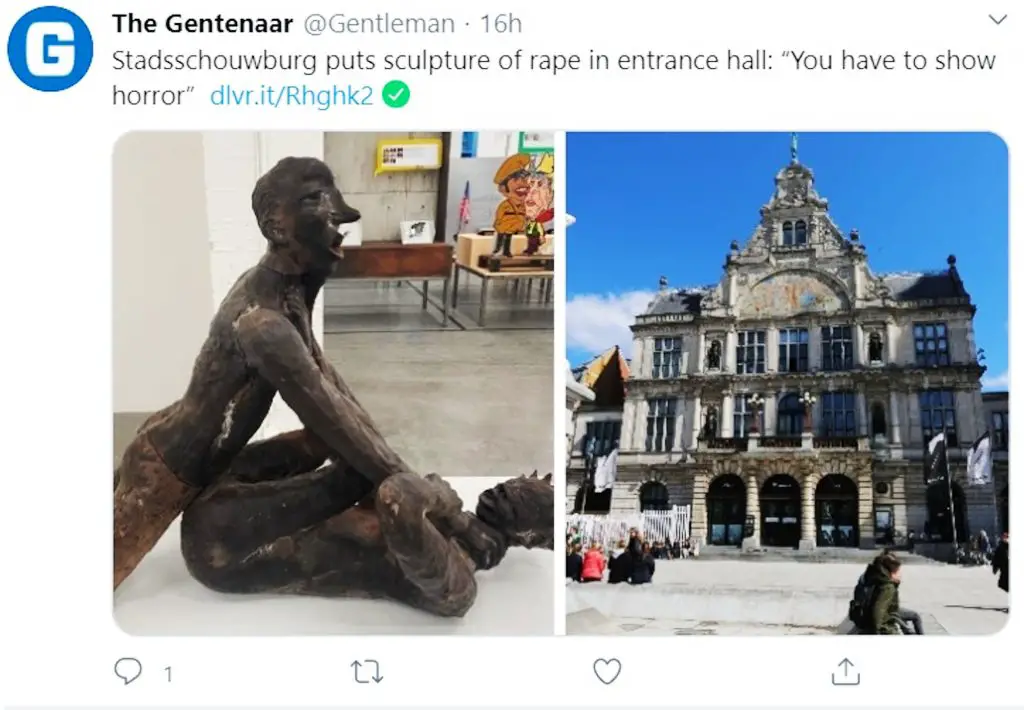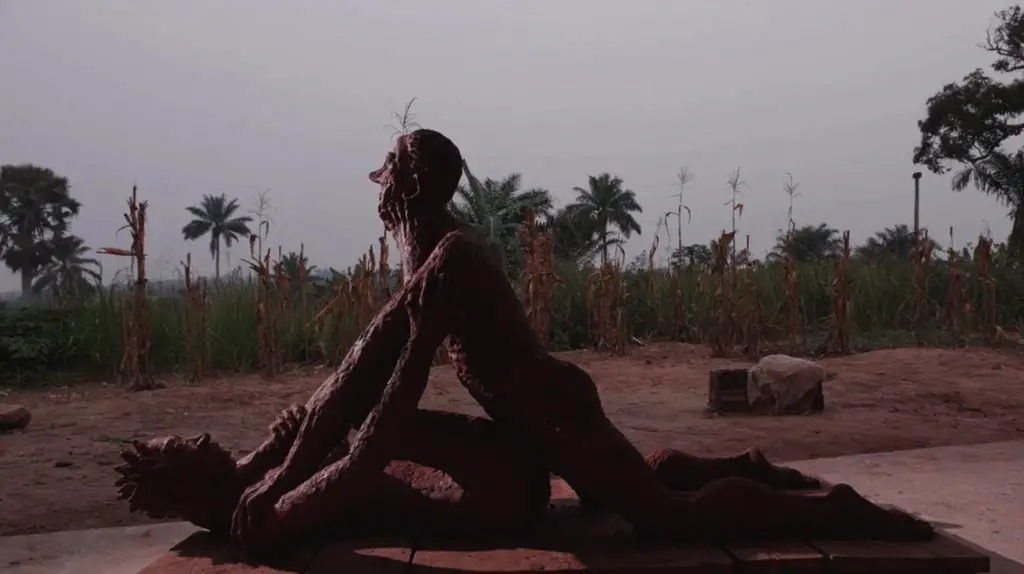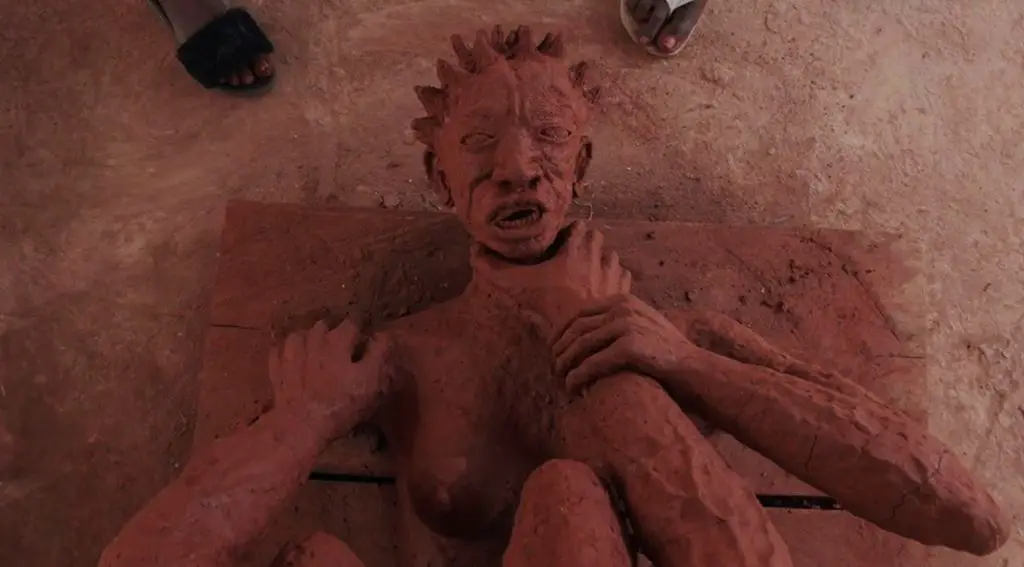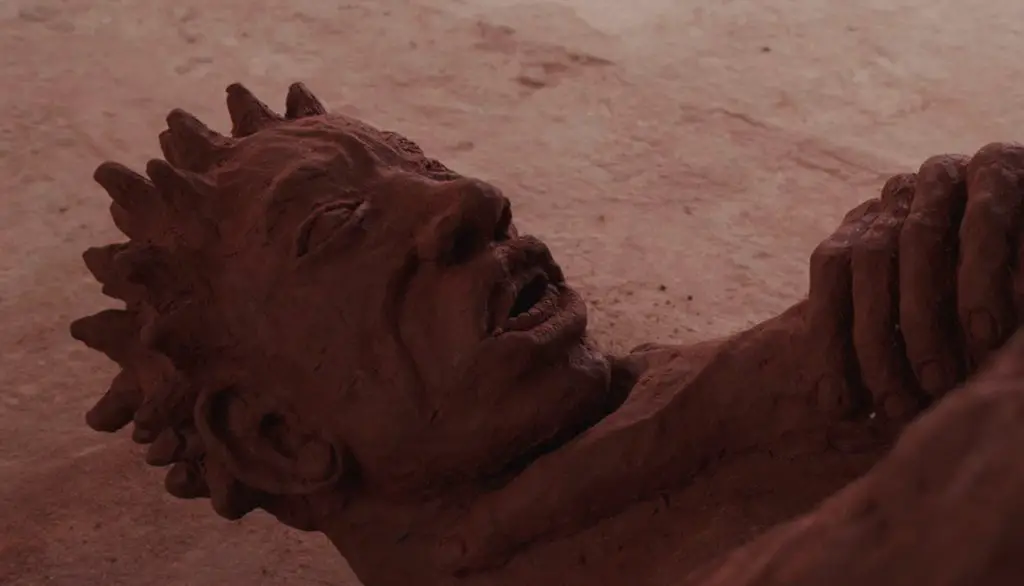Story By: Lee Bullen, Sub Editor: Joseph Golder, Agency: Newsflash
A Belgian theatre has displayed a controversial statue depicting a rape scene in the Congo at the entrance after reopening amid the COVID-19 pandemic.
The statue is on show at the NTGent Theatre in the city of Ghent in the Flemish Region of Belgium.
The theatre reopened after a six-month hiatus, and installed a statue depicting a rape in Lusanga in colonial Congo in 1931.

The work is called ‘Forced Love’ and is made from cocoa beans by artist Irene Kanga.
NTGent spokesperson Tom Declerq said: “We discussed this in-house. It’s an explicit image, and it can come across as unfriendly to women.
“The work was made by artist Irene Kanga from the Congo who believes that you have to show the horror to understand it.”

“After the ‘iconoclasm’ against Leopold II, it became clear to us that the topic is alive in a city like Ghent and that we would like to respond to it.
“With performances such as ‘Black’ and ‘Compassion: The History of the Machine Gun’, we have already taken the first steps to reopening the decolonisation debate in our theatre.
“Context is everything. At the inauguration, Bambi Ceuppens of Africa Museum will explain the historical events of the 1930s in Congo.

“We are also pleased to know that the money used to purchase the artwork will go to the CATPC organisation (Cercle d’art des travailleurs de plantation congolaise) of which Kanga is a member. The organisation is buying back Congolese agricultural land where exploitation is rampant from large companies.”
According to the theatre’s website, “the scene evokes a historical event: the rape of Kafutchi, one of the women of the Pende chef Matema Kelenge, by Belgian colonial agents during a campaign of forced recruitment of palm harvesters on the plantation of the Lever brothers in Lusanga (formerly Leverville) in 1931. This act led, among other things, to the beheading and mutilation of colonial agent Maximilien Balot in retaliation and to the great Pende revolt.” (sic)
Belgian Congo was a Central African Belgian colony from 1908 until it gained its independence in 1960.

The Belgians have a long history of abuse in the Congo during the colonial era, with atrocities including mass rapes and mutilations dating back at least to King Leopold II, who reigned from 1865 to 1909 and whose personal reign of what was then the Congo Free State saw so many horrific atrocities being carried out that it led to a decline of the local population.
Belgian Congo was marked by an apartheid that eventually led to resistance and independence.
The ViralTab page is created by and dedicated to professional, independent freelance journalists. It is a place for us to showcase our work. When our news is sold to our media partners, we will include the link here.



